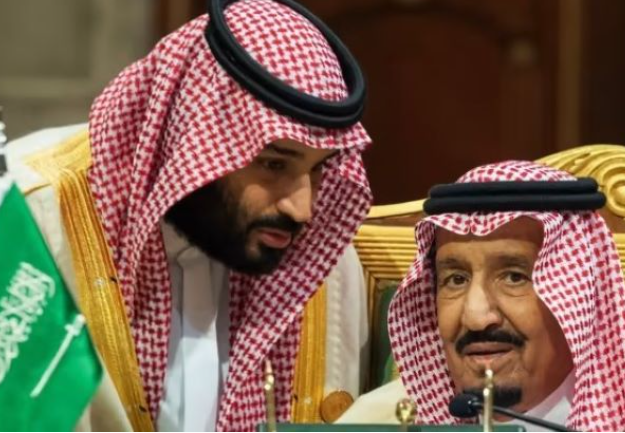
STRATEGIC ASSESSMENT. While it was no secret that U.S. President Joe Biden and Saudi Crown Prince Mohammed bin Salman (MBS) were not on the best of terms, the current trajectory of the relationship could portend a more permanent change. Both Washington and Riyadh have pledged a reassessment of the relationship, particularly after recent revelations that the Saudis reneged on a deal to boost oil production through the end of the year. By deciding to slash oil production by 2 million barrels per day (bpd) following an October 5th meeting of OPEC +, Saudi Arabia contributed directly to a rise in crude oil prices at a time of rising inflation. That the decision was taken with just weeks to go before the U.S. midterm elections was perceived as a further slight by the Biden administration, which accused Saudi Arabia of coming to the aid of Vladimir Putin and Russia, despite Moscow’s ongoing illegal invasion of Ukraine. The New York Times described the deal’s breakdown, describing it as “a story of handshake agreements, wishful thinking, missed signals and finger-pointing over broken promises.” Saudi Arabia’s energy minister, Prince Abdulaziz bin Salman, criticized the Biden administration late last week for its decision to sell oil from the U.S. emergency oil reserve, before commenting that the Saudis chose to be “the mature” party when asked about the ongoing energy dispute. He went on to say, “China is the number one export destination for the oil Kingdom’s exports. The Kingdom will continue to be its reliable and trusted partner.”
Trust and mutual respect between the United States and Saudi Arabia appear to have reached a nadir. Recent reporting by the Wall Street Journal suggested that MBS “mocks President Biden in private” and questions the President’s “mental acuity” while making it clear that the Saudi Crown Prince maintains a clear preference for former President Donald Trump, who gave the Kingdom a veritable “blank check,” acquiescing to MBS’ often erratic decisions. MBS has complained about being chided over Saudi human rights abuses and apparently resents Biden’s insistence on discussing the murder and dismemberment of Saudi journalist Jamal Khashoggi, a horrific incident that U.S. intelligence believes was ordered by the Crown Prince. Some believe the rocky relationship between the Biden administration and Saudi Arabia dates back to Biden’s terms as Vice President when the administration of former President Barack Obama frequently sparred with Riyadh. During his own presidential campaign, Biden dubbed Saudi Arabia a “pariah.”
The recent OPEC + move to cut production and accusations by the U.S. that Saudi Arabia was not transparent with its decision have also led members of the U.S. Congress to call for a freeze of weapons sales to the Kingdom. One of the few bipartisan sentiments in the U.S. government is that the Saudi decision was motivated by a disdain for the Biden administration and was not an economic necessity as some close to MBS have attempted to portray it. The U.S.-Saudi relationship could be fundamentally shifting to an almost purely transactional one, characterized by what President of the Council on Foreign Relations President Richard Haass calls “strategic drift,” while also arguing that Riyadh is foolishly acting against its own self-interest. There are areas where the U.S. and Saudi Arabia will continue to cooperate, including in countering Iran, working to wind down the conflict in Yemen, and integrating Israel closer into regional security relationships. As National Security adviser Jake Sullivan commented, “the president isn’t going to act precipitously,” even if the mercurial Crown Prince continues to act impulsively and to the detriment of the longstanding partnership.
While the Biden administration is embarrassed and feels undercut by the recent OPEC + decision, all eyes will be on the next meeting in December, when Russian oil will be coming off the market following a European oil embargo scheduled to go into effect. If Saudi Arabia again votes to cut production, it will lead to a further rift with the United States and will signal Riyadh’s growing drift closer to Moscow. Senator Dick Durbin (D-IL), the Democratic whip, has suggested that the Justice Department could sue OPEC members for antitrust violations. The Saudis have discussed selling U.S. Treasury bonds in response to anti-OPEC legislation, a move guaranteed to further escalate already tense relations between the U.S. and Saudi Arabia. MBS has made it clear that he believes there are viable alternatives to the United States, hinting that Riyadh could look to Beijing to supplant Washington as a security guarantor. Even for the notoriously petulant MBS, this would be a myopic decision that would lead to a longer-term strategic shift in the relationship. By inserting itself into the competition between China and the United States, Saudi Arabia risks alienating some of the United States’ most powerful institutions, including the Department of Defense and the intelligence community.





